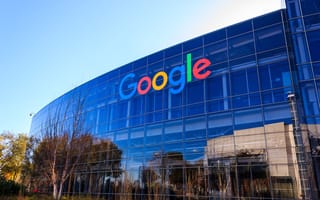Google announced this week it will begin rolling out its conversational artificial intelligence service Bard in an effort to claim its place in the fast-moving generative AI market currently dominated by Microsoft-backed OpenAI.
In a blog post, Google CEO Sundar Pichai said Bard will draw on information from the web to provide users with “fresh, high-quality responses.” According to the company, Bard will be able to help a user plan a baby shower, compare two Oscar-nominated movies or prepare a lunch using the food in their refrigerator.
“Bard can be an outlet for creativity and a launchpad for curiosity, helping you to explain new discoveries from NASA’s James Webb Space Telescope to a nine-year-old or learn more about the best strikers in football right now, and then get drills to build your skills,” Pichai said.
Bard is currently being tested by a limited group of trusted users, Pichai said, and it will be “more widely available to the public in the coming weeks.”
By announcing its own conversational AI technology, Google is taking on OpenAI and Microsoft, which invested $1 billion in OpenAI in 2019. It invested another $10 billion last month, according to Bloomberg.
OpenAI took the tech world by storm last year when it introduced its conversational AI tool ChatGPT, a chatbot that eloquently answers user’s questions — sometimes inaccurately — based on the large data sets it has absorbed using OpenAI’s GPT-3.5 language learning model. The AI chatbot has already been banned in several school districts due to plagiarism concerns, and it has caused marketing copywriters, journalists and software developers to wonder if they will someday lose their job to a robot.
The day after Google announced the roll-out of Bard, Microsoft announced it harnessed OpenAI’s newest language model to power the latest version of its Bing search engine and Edge web browser. The language model driving Bing is more advanced than ChatGPT and is optimized for search capabilities, according to Microsoft.
Even before Microsoft’s announcement, some observers wondered if a ChatGPT-powered search engine might topple Google from its position as the dominant search engine.
As Pichai points out in his blog, though, Google Research paved the way for generative AI technologies in 2017 by developing the Transformer neural network architecture, also known as the “T” in GPT. In 2021, Google broke new ground in language and conversation capabilities with its Language Model for Dialogue Applications, also known as LaMDA.
Google researchers used LaMDA to create Bard. The initial version of Bard will launch with LaMDA’s lightweight model, which, according to Pichai, requires less computing power and allows more users to try it out and provide feedback.
Google is also incorporating its latest AI technologies into its flagship search engine. Pichai said Google search results will soon include nuanced, detailed responses that consider multiple perspectives on a given topic.
For example, if a user asks if a piano or guitar is easier to learn, Google’s AI-powered search would reply: “Some say the piano is easier to learn, as the finger and hand movements are more natural, and learning and memorizing notes can be easier. Others say that it’s easier to learn chords on the guitar and you could pick up a strumming pattern in a couple of hours.”
Google will also start onboarding developers, creators and enterprises next month to experiment with its generative language API as it works to create a suite of tools and APIs to help others build AI-powered applications, Pichai said.




